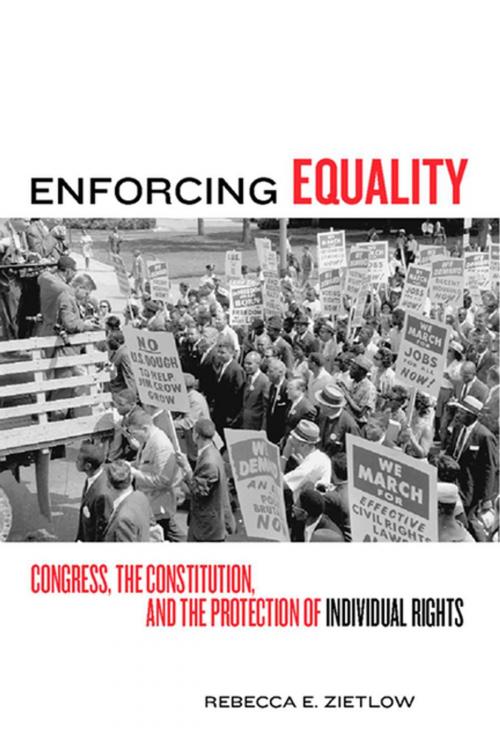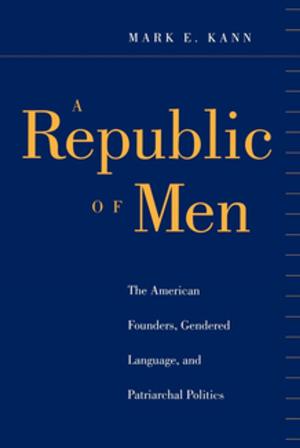Enforcing Equality
Congress, the Constitution, and the Protection of Individual Rights
Nonfiction, Reference & Language, Law, Constitutional| Author: | Rebecca E Zietlow | ISBN: | 9780814797334 |
| Publisher: | NYU Press | Publication: | October 1, 2006 |
| Imprint: | NYU Press | Language: | English |
| Author: | Rebecca E Zietlow |
| ISBN: | 9780814797334 |
| Publisher: | NYU Press |
| Publication: | October 1, 2006 |
| Imprint: | NYU Press |
| Language: | English |
In Enforcing Equality, Rebecca E. Zietlow assesses Congress's historical role in interpreting the Constitution and protecting the individual rights of citizens, provocatively challenging conventional wisdom that courts, not legislatures, are best suited for this role.
Specifically focusing on what she calls “rights of belonging”—a set of positive entitlements that are necessary to ensure inclusion, participation, and equal membership in diverse communities—Zietlow examines three historical eras: Reconstruction, the New Deal era, and Civil Rights era of the 1960s. She reveals that in these key periods when rights of belonging were contested and defined, Congress has played the role of protector of rights at least as often as the Supreme Court has adopted this role. Enforcing Equality also engages in a sophisticated theoretical analysis of Congress as a protector of rights, comparing the institutional strengths and weaknesses of Congress and the courts as protectors of the rights of belonging.
With the recent new appointments to the Supreme Court and Congressional elections in November 2006, this timely book argues that individual rights are best enforced by the political process because they express the values of our national community, and as such, litigation is no substitute for collective political action.
In Enforcing Equality, Rebecca E. Zietlow assesses Congress's historical role in interpreting the Constitution and protecting the individual rights of citizens, provocatively challenging conventional wisdom that courts, not legislatures, are best suited for this role.
Specifically focusing on what she calls “rights of belonging”—a set of positive entitlements that are necessary to ensure inclusion, participation, and equal membership in diverse communities—Zietlow examines three historical eras: Reconstruction, the New Deal era, and Civil Rights era of the 1960s. She reveals that in these key periods when rights of belonging were contested and defined, Congress has played the role of protector of rights at least as often as the Supreme Court has adopted this role. Enforcing Equality also engages in a sophisticated theoretical analysis of Congress as a protector of rights, comparing the institutional strengths and weaknesses of Congress and the courts as protectors of the rights of belonging.
With the recent new appointments to the Supreme Court and Congressional elections in November 2006, this timely book argues that individual rights are best enforced by the political process because they express the values of our national community, and as such, litigation is no substitute for collective political action.















